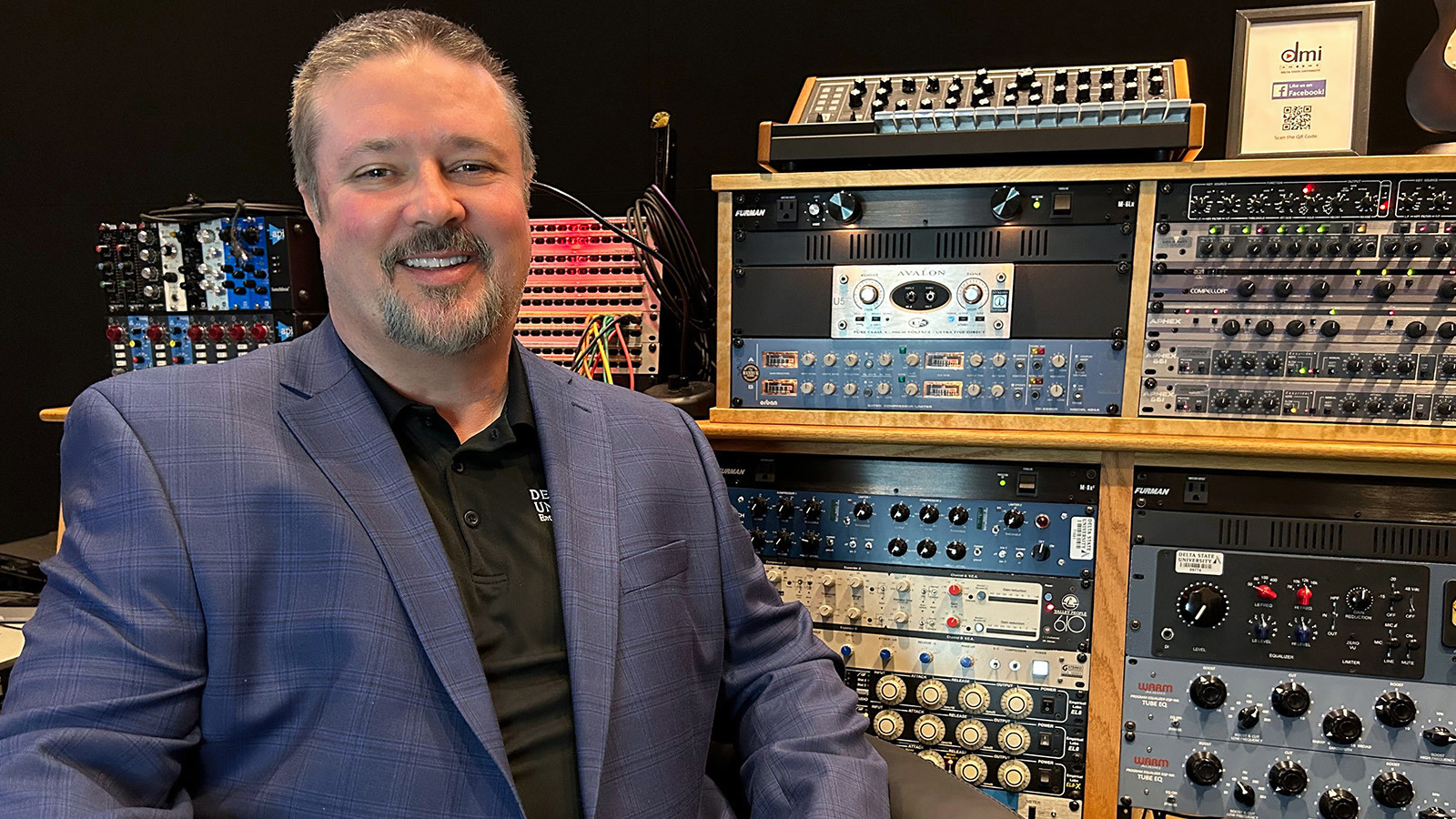Full Sail Stories
Published Jun 27, 2025
Lifelong Learner and Master's Grad is Director of Delta State University’s Music Institute
Entertainment Business master's graduate Richard Tremmel always enjoys learning new things.

Full Sail University grad Richard Tremmel is a lifelong learner who has made it his career to pass on his knowledge to others. He studied music and business as an undergraduate, got his first master's degree in Music Education, and then earned a second master's from Full Sail in Entertainment Business in 2011; he recently completed his doctorate in Instructional Design Leadership in 2024.
Richard currently puts this breadth of knowledge to work as the Director of Delta Music Institute at Delta State University in Mississippi, where he invests his time and expertise in the next generation of music and entertainment industry professionals.
Richard has always loved music. An avid musician growing up, he played various instruments, enjoyed going to concerts, started a band with his friends, and knew he wanted a career related to music. After getting his undergraduate degree in music and business, Richard moved to Hollywood to pursue his rock 'n’ roll dream.
“[In Hollywood,] I learned a lot about the music business and about how that world works,” Richard reflects. “And after all that time I’d been playing in bands, at some point I decided, ‘Well, maybe this is over now and I really need to get a real job.’ So I started teaching.”
Richard moved to North Carolina and directed middle school and high school bands for several years. He earned his first graduate degree in Music Education and taught entertainment technology and music business courses at a local college for 15 years.
Soon, Richard became more interested in pursuing a graduate degree related to the business side of the music industry. He says: “I’d been teaching and decided that I wanted to get a master’s in entertainment business, and that's how I came across Full Sail. It worked out great, because I did the online program so I didn't have to leave my job.” In 2011, Richard graduated as valedictorian of his class.
For the last decade, Richard has been an educator at Delta State University in Mississippi. He started as a professor teaching entertainment marketing, the fundamentals of sound cognition, a survey of the entertainment industry, and more. Now as the Director of the Music Institute and Chair of Entertainment Industry Studies, his day-to-day includes supervising faculty and staff, hiring, budgeting, scheduling, designing courses and curriculum, overseeing their state-of-the-art recording studios, as well as teaching courses and advising students.
“[My degrees] lend credibility to what I do,” says Richard. “Whenever I look at courses to develop for my program, I ask myself, ‘Okay, how could I do something like [what I learned], or what can I take from [my studies] that students need to know?’”
In addition to working as a full-time educator, Richard also runs his own business, RTS Backline, a rental company for live music gear that he started in 2018.
Even with so many diplomas hanging on his wall, Richard always enjoys learning new things. “I still take classes wherever I can find them here and there from different places, because I find that I'm either going to get something out of it that I can share with my students, or I'm going to find something that is going to benefit me personally and my business.”
For those on the cusp of their careers, Richard encourages trying things.
“Experience as much as you can experience," he advises. "If you get the opportunity to experience the industry, whether it be the live side of things, or the production side, or the recording side, go experience that. Go live it and see what that reality is.
"Because a lot of times people see the performer onstage and they don't realize there's a thousand people behind the scenes who had to make [the production] happen. And every one of those are great jobs and great careers.”



